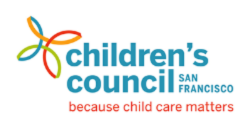Topics
Choosing Child CareFamilies' RightsFamily & Community EngagementFinancial AssistanceLicensing & SafetyParenting & Child DevelopmentProvider ResourcesResource & ReferralSpecial NeedsYoung children learn everywhere—in early learning settings, outside of school, and at home. Studies show that when parents are involved in their child’s learning, children display:
- Improved confidence
- Improved learning outcomes
- Improved behavior
- Improved social skills
- Fewer missed classes
Parental involvement in a child’s education helps children feel comfortable. And when children are comfortable, they’re free to learn.
The Parental Role in Early Childhood Education
In many early childhood programs, parents are welcomed and encouraged to take part in program activities.
- Many Montessori schools have parent-infant classes.
- In Waldorf schools, parents are encouraged to volunteer inside the classroom.
- In Reggio Emilia schools, parents are viewed as partners in education, and are welcome to come into the classroom and teach the children.
- At Co-Op schools, parents contribute on campus, in the classroom, and in the office in exchange for low-cost tuition.
- Child Development programs seek parent input through parent advisory groups, parent surveys and parent engagement events.
Many parents, however, do not have time during the day to take part in program activities. That’s OK. There are a lot of other ways for parents to be involved. These include:
- Attending parent-teacher conferences.
- Meeting with teachers/caregivers early in the school year to discuss expectations and desired outcomes.
- Talking to their children about what they’re doing in their early learning or school setting. This includes asking questions about favorite activities and least favorite activities.
- Ensuring that children get enough rest during the night. Rest at night helps children be effective learners during the day.
In addition, parents can make their homes an extension of the learning environment. This can be done by:
- Having books, art supplies, and other learning materials in the home and at close reach.
- Enhancing lessons by involving children in chores and tasks.
- Echoing the things heard in the learning environment such as rules, songs, and vocabulary words.
For more information about how you can become more involved in your child’s education, ask your child’s teacher/caregiver.
Sources:
http://neatoday.org/2014/11/18/the-enduring-importance-of-parental-involvement-2/
https://blog.himama.com/why-parent-involvement-is-important-in-preschool/
https://www.naeyc.org/resources/blog/understanding-power-parent-involvement
https://www.pasadenawaldorf.org/school/our-community/parent-participation
Was this article helpful?
Similar Resources
Families’ Rights in Choosing Child Care
In California, parents have the right to make the best child care choices for their family. Parents have many options:...Child Care Resource and Referral Agencies (CCR&Rs)
What is a CCR&R? Child care resource and referral agencies (CCR&Rs) serve families, child care providers and the...Licensing and Monitoring for Child Care Facilities in California
Community Care Licensing Information The Department of Social Services, Community Care Licensing (CCL) licenses and moni...Log into your account
Don't have an account? Sign up
Sign up to save your own provider lists
Already have an account? Log in
Create an account with Email Address | Phone Number

